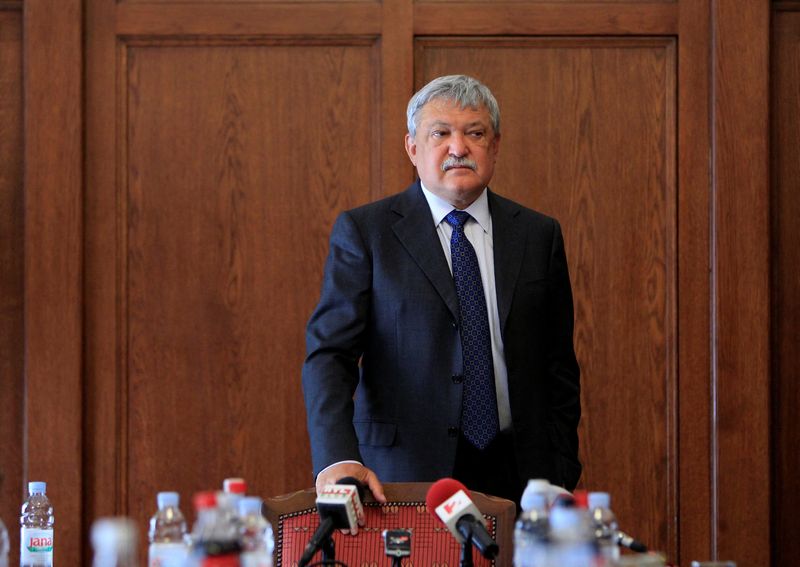Putin divestment decree complicates OTP’s Russian exit effort
2022.08.11 15:38

FILE PHOTO: Hungary’s OTP Bank Chief Executive Sandor Csanyi looks on, after a news conference in Budapest, July 24, 2013. REUTERS/Bernadett Szabo/File Photo
BUDAPEST (Reuters) – Hungarian OTP Bank’s Russian unit has attracted “serious interest” from potential bidders, but a Russian presidential decree banning the sale of Western banks could complicate any deal, deputy chief executive Laszlo Bencsik said on Thursday.
CEO Sandor Csanyi said in April that OTP would exit the Russian market if a buyer came forward with an offer that makes business sense, adding that its market presence there could become a moral issue.
He later said that OTP was under pressure from the government of Ukraine, where the bank is also present, to sell its Russian unit.
A presidential decree, signed by Russian President Vladimir Putin and published last Friday bans investors from what Moscow terms unfriendly countries, which include members of the European Union, from selling shares in certain energy projects and banks until the end of the year.
The decree provides for waivers in some cases.
“The presidential decree banning the sale of foreign banks that has been published in Russia creates a special situation, but we keep studying our options and that includes the possible sale of the (Russian) bank,” Bencsik said on Thursday.
He said OTP’s Russian operation was profitable, which meant the bank was “in a situation where we can adapt to circumstances”.
OTP said in its Q2 earnings statement earlier on Thursday that its Ukrainian and Russian assets together represented 8% of its consolidated assets.
The bank said that second quarter earnings turned positive in its Russian and Ukrainian business following substantially lower risk costs and that it expected its Russian subsidiary to deliver positive earnings for the rest of 2022.








